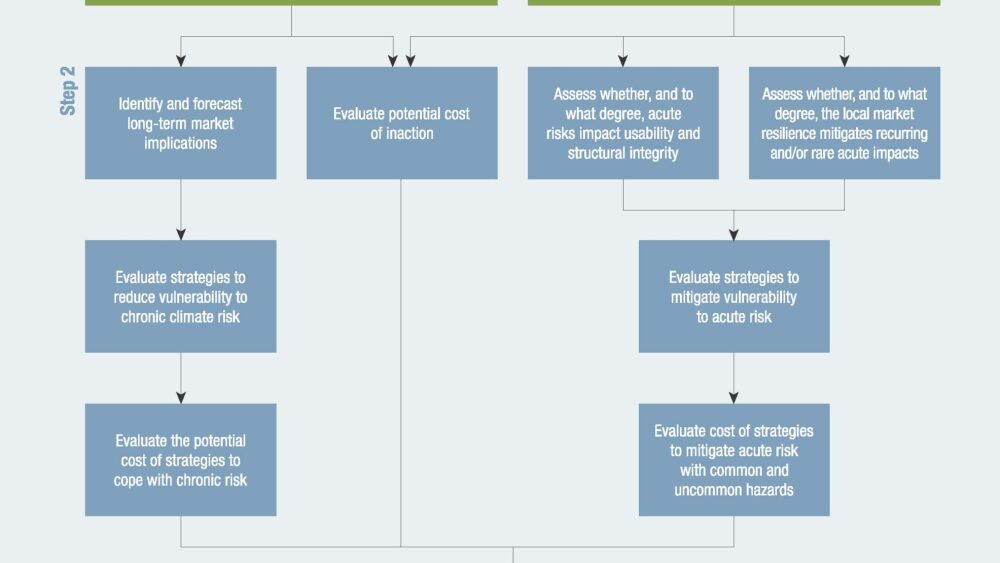A new global report from ULI and LaSalle Investment Management (LaSalle), a leading real estate investment management firm, offers a new framework to help the real estate industry act on climate risk disclosure data. Across the real estate industry, practitioners understand physical climate risk to assets and portfolios poses a financial risk, but there are still many challenges to acting on the data being collected and disclosed.
This new framework is the latest tool for real estate investors and other practitioners to evaluate the costs of action and inaction when it comes to investing in resilience. The report, Physical Climate Risks and Underwriting Practices in Assets and Portfolios is the second in a series by ULI and LaSalle. Building on the first report that outlined how to source and interpret reliable climate risk data, the second provides a market overview, adaptable framework, and recommendations based on emerging best practices for incorporating physical climate risk in the underwriting process.
“Physical climate risk data collection and disclosure is the first step the real estate industry can take to further invest in and build resilient infrastructure,” said Lindsay Brugger, head of Urban Resilience at ULI. “Data drives action, and doing nothing incurs deeper costs — from higher insurance premiums to asset repair or replacement. Focusing on the underwriting process, the framework offers investment managers a methodology for developing risk-adjusted returns so deals can be adapted in alignment with a firm’s fund or portfolio objectives.”
“Of the $850 billion of commercial real estate tracked by NPI, LaSalle estimates $285 billion, or 34% is situated in high and medium-high climate risk zones in the US,” said Julie Manning, Global Head of Climate and Carbon at LaSalle Investment Management. “This report helps provide guidance that investment managers can follow to factor the climate risk data they have available to them and improve outcomes at the asset and portfolio level. We want to lead the conversation across the industry and collaborating with ULI is a great conduit to amplify the discussion that will ultimately benefit investors of all kinds with more resilient real estate portfolios.”
The framework is broken down into three steps for decision making based on individual asset risks, local market risks, and ongoing risk mitigation efforts:
- Evaluate the level of exposure to physical climate risk and financial implications;
- Identify hazard mitigation strategies and estimate associated costs; and
- Determine risk-adjusted return and whether or not that return meets firm objectives
Source: Urban Land Institute and LaSalle Investment Management
As climate impacts continue to influence real estate markets around the world, improving understanding of physical climate risk and adjusting pricing to reflect risk are growing imperatives. Firms can better navigate the complexities of physical climate risk and capitalize on emerging opportunities by leveraging this new report’s insights and guidance. Prioritizing knowledge diffusion and empowering informed decision-making processes is key to effectively managing and mitigating incoming climate risks in the evolving real estate industry, whether at a community or individual building scale.
The full report and downloadable framework can be found on ULI’s Knowledge Finder.





